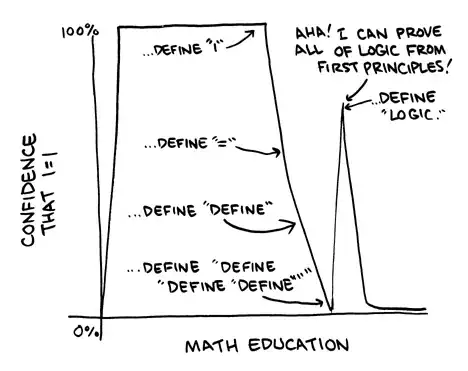To define a word, even the word "define", you need a language with which to define it. Trying to do so in English is difficult, because English is not what we call a formal language. A formal language is a list of symbols and an acceptable grammar for these symbols to follow.
In mathematics, we generally use the formal language of Zermelo-Frankel set theory (or ZFC) to talk to each other (although many alternative ways have been studied). In this language, I would define a definition to be a finitely generated formula (would you accept an infinitely long definition of something?) of set theory that is legitimate according to the grammar whose quantifiers range over previously known results.
For example, in ZFC the definition "A number is an even number if it is a multiple of 2," can be written as "If x is a natural number and there exists another natural number y so that x=2y, then we define x as an even number," in ZFC which, in the scope of set theory, is a legitimate sentence whose quantifier ("all") ranges over the set of natural numbers.
A sentence that isn't definable would be something like "Call a set U universal if it contains all possible sets," because to define it in ZFC, you would need a formula "If U is a set so that for any set X, X is in U, then we call U universal," this formula quantifies over the set of all sets, which is not a set by Russell's Paradox, so this is not a legitimate definition.
Kurt Gödel studied "definable" structures in set theory and came up with the constructible universe, called L, which is a very useful concept in studying models of set theory. L is basically the "set of things definable by a formula of ZFC". Notably, under the assumption that all of the universe of set theory is actually equal to L, one can prove the generalized form of continuum hypothesis, one of the biggest problems in set theory during the 20th century.
